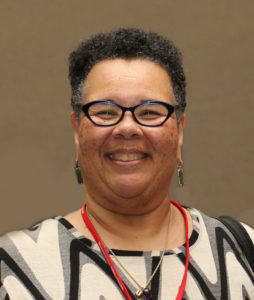
Hold My Mule
Listen to Dr. Westfield read this blog post in her "I'm Just Saying" audio blog series
“Will somebody please Hold My Mule,” might sound like an urgent plea for animal restraint. Spoken in the African American vernacular tradition, it is a warning of a pending ecstatic release. But, here, context matters. Today rustic moments that involve a sun whipped sharecropper harnessed to a mule are only to be found in murals of Charles Wilbert White – and even those are rare. It is in the deep Black folk wisdom not, yet, hushed by the street flow of our urban youth, that “hold my mule” signifies a breakthrough – joyous, adoratious, shoutlicious and affirmatious Truth revealed. In the face of such sanctified Truth, every atom must come to rest, yet, without being stilled. A moment of creative insight, clarity of purpose, any critical happening – “Hold my mule” is a peroration to pause for deep prayer, praise, worship, cry and give thanks.
Let me reiterate, “Context matters.” “Please somebody hold my mule” can signal a moment of urgent trouble. It can, also, be a call to gather for defense, diplomacy or a piece of curative business. In either case, to say Hold My Mule signals a leave-taken, a break from or with whatever occupies you. It presages a moment of intensity, sometimes transcendence, and always urgency.
My most recent Hold My Mule moment happened in the Wabash symposium with Victor Wooten. We were discussing improvisation – something I thought I understood. As a group exercise, each participant defined and/or described improvisation, then said the feeling(s) associated with it. By the end of the report-ins our group had verbally constructed a tapestry of understandings and feelings about improvisation; very beautiful and informative. Victor, adding to our tapestry, offered this wisdom (I am paraphrasing):
Improvisation is in our DNA…. for example, those of us who grew up in poor households learned from our parents to improvise…Our parents were models for improvisation and how to create something new. As human beings we are all really good at improvising. It is who we are. To be alive, you have to improvise… We can improve upon improvisation but there is no need to learn to improvise because it is what we already do all the time. Babies do not have to be taught to laugh, walk, cry – they improvise based upon how they feel. Your body does not have to ask what or how to feel; it just does… Then based upon those feelings we decide how to create, improve, and change. Improvisation is about taking what we know and using what we know to produce the unknown. (Victor Wooten, December 2, 2020)
“Hold My Mule!” It was all that I could do not to get up from my chair in front of the Zoom screen and I run around my house praising and thanking God for this wisdom, this insight, this moment of exuberant joy (audio and video on). This was a moment of ah-hah! When the lightbulb goes on. The thick white clouds part. The Red Sea splits. Eureka!
Before Victor’s teaching, I had reduced improvisation to a technique that was separate or apart from daily life activities or a tool occasionally deployed when needed in music or in teaching. (My Lord!) I had thought improvisation was what the “greats” of music are able to achieve after years of study and performance. (I once was lost!!) I had been operating as if improvisation was something that was utilitarian and reserved for those who worked tirelessly to develop this specialty. (But now I am found!!!) Victor opened my eyes to see that improvisation is intrinsic. All of life’s decisions are acts of improvisation. (I was blind!!!!) When we have the where-with-all to take what we know and put it in service to discovering, exploring, and coming to know what is unknown – it is then that we are living into the fullness of our humanity. (But now I SEEEE!!!!!)
Allowing what we know to pull us into and guide us to the unknown is a risky proposition. Teaching to produce the unknown will not be satisfied with regurgitating the known – by learner or by teacher. It requires teachers who are capable of being aware of, and able to be flexible, limber, and open to seeing the miracles, not when they come, but as they come. Teachers who understand their improvisational nature and the improvisational nature of their learners, create through discovery. They understand that in a sense, it is discovery that teaches. In teaching with this knowledge at the forefront, we are not following a way of teaching or of learning, but creating a way of being that revels in the joy of the unknown and the newly created.
(Through many dangers
Toil and snares
We have already come
Twas grace hath brought
Us safe thus far
And grace will lead us home)
Leave a Reply